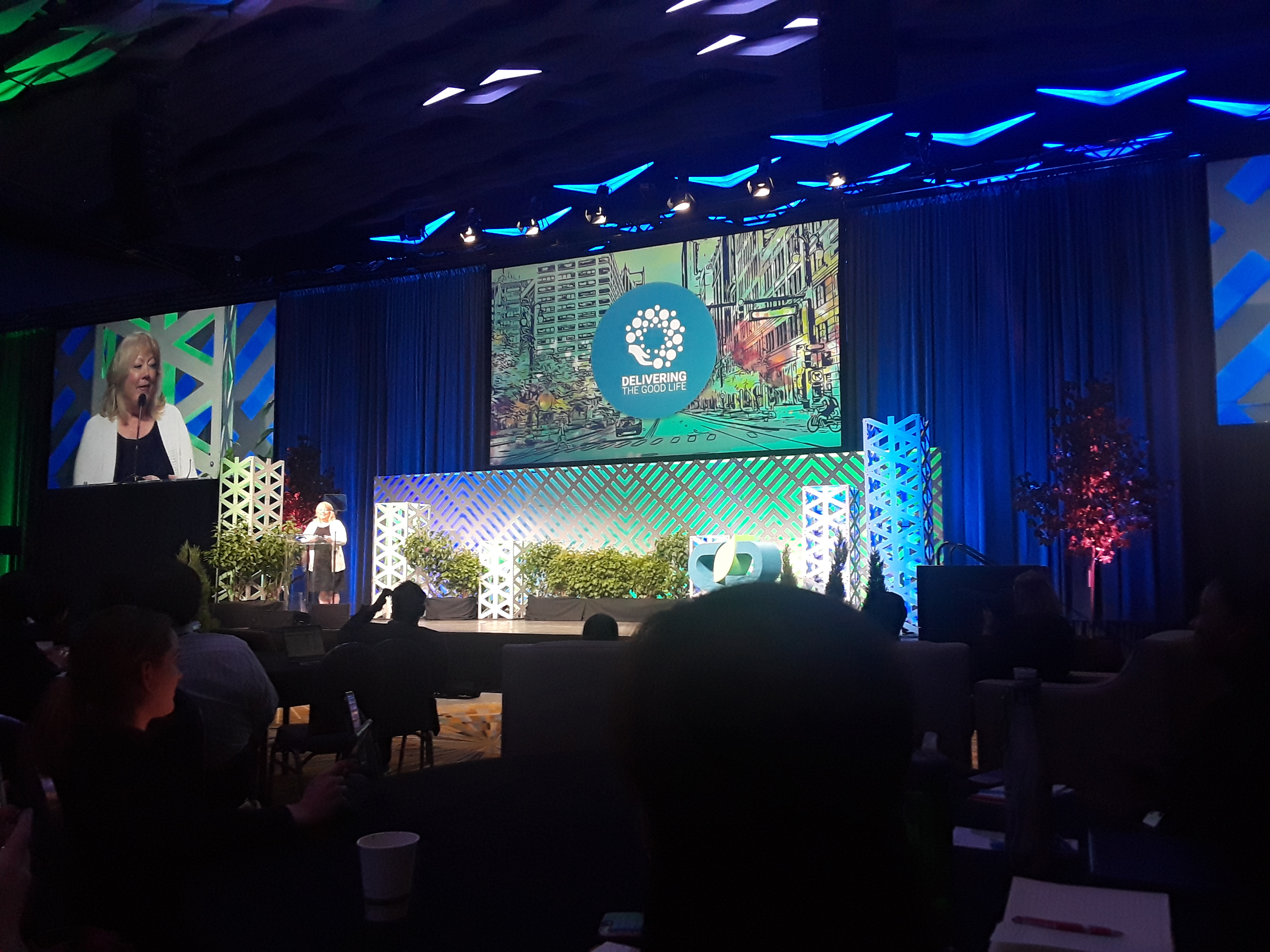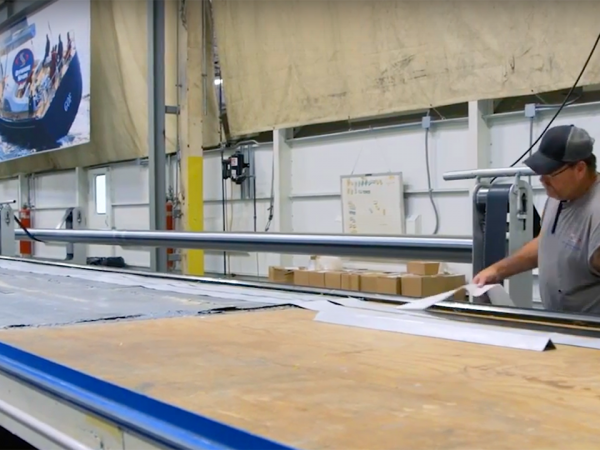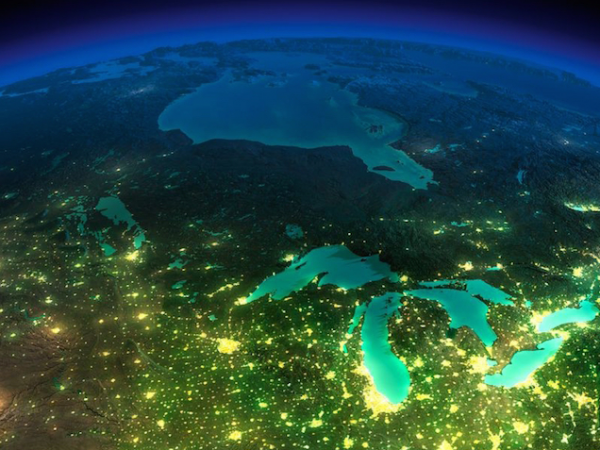
Sustainable Brands did not ease attendees into the first day’s workshops.
Unless an attendee chose to participate in sunrise yoga, programming started right in on heavy topics regarding sustainability issues that can have profound effects on health, the environment, business and society.
Great Lakes Now, a conference exhibitor, started the week by attending the presentation on setting science-based goals with respect to carbon and water.
CDP North America’s senior manager of water security, Christina Copeland, led the section of the presentation on water. “Water really is the lifeblood of the global economy,” Copeland said. “I’m sure everyone in this room understands that if they don’t have sufficient supply of good quality water, that their business will suffer, and this possibility is looming but a lot of cases are already being felt by businesses around the world.”
In 2016, the UN warned about the potential for a 40 percent global shortfall in water supply by 2030, a statistic that Copeland also brought up in her presentation.
“It’s not just quantity issues, it’s quality issues as well,” Copeland said. “We’re seeing excessive loads of nitrogen, phosphorus from agriculture, industrial production, mining, many different sectors, degrading the quality of the water that we have left.”
Copeland referenced the World Economic Forum’s lists of top 10 biggest risks facing the world in 2019. Many concerns plaguing the Great Lakes made it on the list, including extreme weather events like floods and storms, which topped the list of risks ranked by likelihood.
Water crises was No. 9 on the list.
On another list of risks ranked by impact, water crises made it to four on the list.
“Water is really a local issue, so if you net a ton of pollution, that’s going to have an impact in that watershed and in that river basin,” Copeland said. “And so each river basin or catchment area has a different set of challenges.”
Copeland also talked about the Science-Based Targets initiative, a collaboration between CDP, the United Nations Global Compact, World Resources Institute, the World Wide Fund for Nature and one of the We Mean Business Coalition commitments, created with the goal of aiding companies in setting science-based targets to cope with carbon, climate, water and other such issues.
One of the workshops following that, “A Survey of Bold Commitments and Initiatives Tackling Plastic Pollution,” brought together a dozen representatives from various companies, Tupperware Brands, HP Inc., Nestle USA and Dell among them.
“We feel like as a company, there is an opportunity for a plastic conversation,” said Mark Shamley, the vice president of global social impact for Tupperware, said.
John Caturano, Nestle’s senior sustainability manager packaging, focused on Poland Spring, one of Nestle’s bottled water brands. He announced that the entire Poland Spring portfolio would be 100 percent recyclable by 2022. He also mentioned other goals being 50 percent recyclable across Nestle’s entire portfolio by 2025 and eventually 100 percent recyclable.
“If we use the resources again, it won’t be pollution, it’ll be a resource,” Caturano said.
“The future we want and need.”
The keynote sessions brought together other company representatives and notable figures to give rousing speeches on the state of the world and its impact on all of us.
“I’m here because there are 5 trillion pieces of plastic in our oceans and embedded in our food chains while we recycle maybe 9 percent,” said Mark Lee, the SustainAbility executive director and MC of the keynote program.
Sustainable Brands CEO KoAnn Skrzyniarz followed, with a speech pointing out the need for “amplifying the positive” to achieve “the future we want and need.”
“We recognize more and more the mess we made of our waterways, our groundwater, our oceans,” Skrzyniarz said, bringing up the world’s water issues as just one of the sustainability struggles people are facing.
“It’s this recognition of loss that’s spurring much of the protectionist reaction,” she said.




